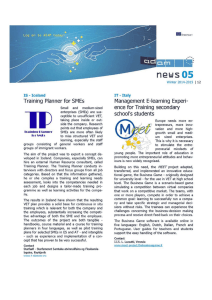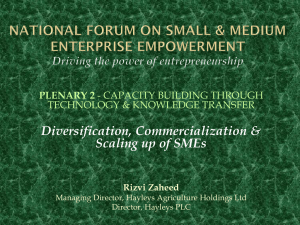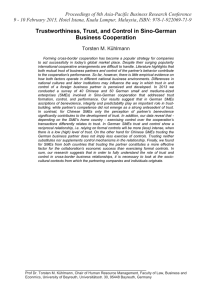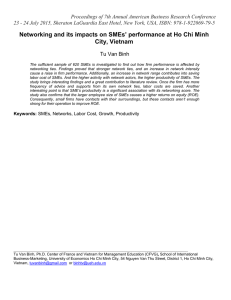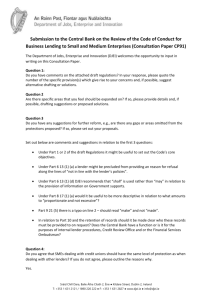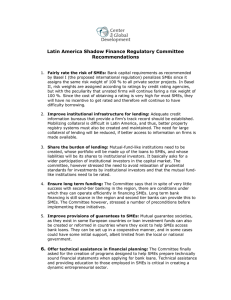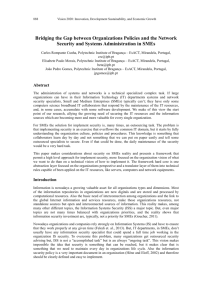Small/Medium Business Impact Assessment* of likely carbon prices
advertisement
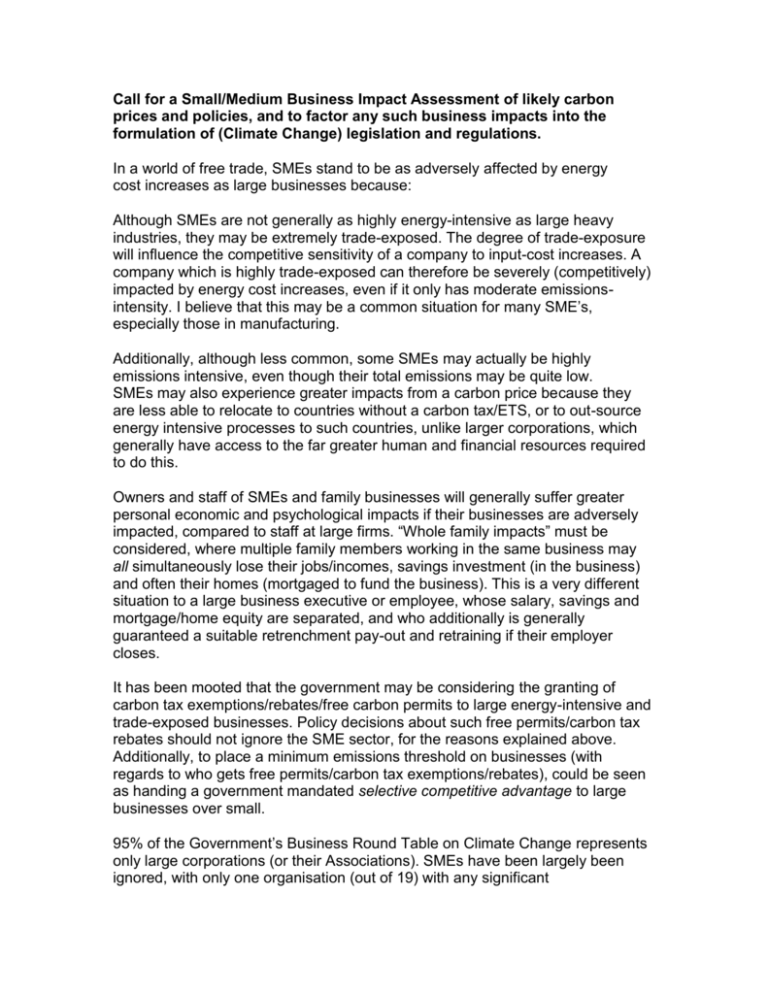
Call for a Small/Medium Business Impact Assessment of likely carbon prices and policies, and to factor any such business impacts into the formulation of (Climate Change) legislation and regulations. In a world of free trade, SMEs stand to be as adversely affected by energy cost increases as large businesses because: Although SMEs are not generally as highly energy-intensive as large heavy industries, they may be extremely trade-exposed. The degree of trade-exposure will influence the competitive sensitivity of a company to input-cost increases. A company which is highly trade-exposed can therefore be severely (competitively) impacted by energy cost increases, even if it only has moderate emissionsintensity. I believe that this may be a common situation for many SME’s, especially those in manufacturing. Additionally, although less common, some SMEs may actually be highly emissions intensive, even though their total emissions may be quite low. SMEs may also experience greater impacts from a carbon price because they are less able to relocate to countries without a carbon tax/ETS, or to out-source energy intensive processes to such countries, unlike larger corporations, which generally have access to the far greater human and financial resources required to do this. Owners and staff of SMEs and family businesses will generally suffer greater personal economic and psychological impacts if their businesses are adversely impacted, compared to staff at large firms. “Whole family impacts” must be considered, where multiple family members working in the same business may all simultaneously lose their jobs/incomes, savings investment (in the business) and often their homes (mortgaged to fund the business). This is a very different situation to a large business executive or employee, whose salary, savings and mortgage/home equity are separated, and who additionally is generally guaranteed a suitable retrenchment pay-out and retraining if their employer closes. It has been mooted that the government may be considering the granting of carbon tax exemptions/rebates/free carbon permits to large energy-intensive and trade-exposed businesses. Policy decisions about such free permits/carbon tax rebates should not ignore the SME sector, for the reasons explained above. Additionally, to place a minimum emissions threshold on businesses (with regards to who gets free permits/carbon tax exemptions/rebates), could be seen as handing a government mandated selective competitive advantage to large businesses over small. 95% of the Government’s Business Round Table on Climate Change represents only large corporations (or their Associations). SMEs have been largely been ignored, with only one organisation (out of 19) with any significant representation/membership from/comprised of SMEs (the Australian Chamber of Commerce and Industry). This is unsuitable given the contribution that this sector makes to the economy and its potential exposure to a carbon price. . An impact assessment would need to be modeled on a “real world situation” ie: - Where our competitors like China, India & the US do not have a carbon price - Where it is generally not possible for businesses to successfully “pass on” carbon prices to their customers, if a similar imported product from a country without a carbon price is cheaper. - “Realistic” national economic/industrial/commercial conditions need to be assumed, for instance that it is generally not possible to reduce labour (and other) costs to compensate for increased energy costs, without adverse impacts on the business.


